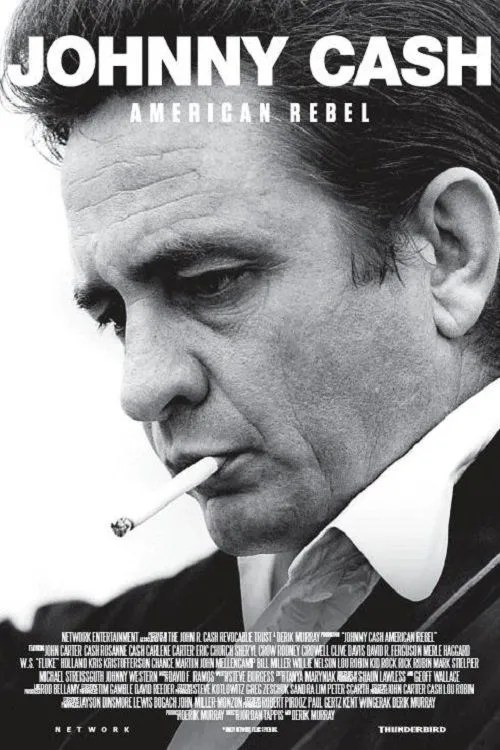Johnny Cash: American Rebel

Plot
The movie "Johnny Cash: American Rebel" is a poignant and thought-provoking tribute to the life and legacy of the iconic musician Johnny Cash. The film delves into the life of this rebellious songwriting icon, weaving his 12 most essential tracks from a span of four decades into the fabric of his remarkable journey. These song choices not only underscore his unique voice and perspective but also encapsulate the tumultuous and transformative era in which he lived – an America grappling with the shadows of war, racial injustice, and prejudice. Born in Kingsland, Arkansas in 1932, Johnny Cash was raised in a family where music played an integral part in the lives of all. His mother, Carrie, was an avid singer, who taught Cash and his siblings how to sing in harmony. Cash's love affair with music began at an early age, and it was not long before he discovered his passion for country music, a genre that would shape his life and career forever. This musical journey led him to the U.S. Air Force, where he served from 1950 to 1954, before being stationed in a remote area in Germany. In this quiet, isolated corner of the world, Cash found his escape in music, learning to play the guitar and singing with fellow soldiers in local bars. Upon his return to the United States in 1954, Cash decided to pursue a music career and auditioned for a local radio station in Memphis. As the film progresses, Cash's career gains momentum, and he soon finds himself working with other iconic musicians such as Sun Records' Sam Phillips, a producer who believed in the immense potential of Cash's soulful voice. This partnership paved the way for the release of his debut single, "Cry, Cry, Cry," a song that catapulted Cash to stardom. With this breakthrough, Cash embarked on a remarkable journey, traversing the country music landscape with an unyielding fervor and conviction. Each of his songs, as showcased in the film, offers a glimpse into the tumultuous America of his time – a nation grappling with the harsh realities of war, racial inequality, and the struggles of the working class. Songs like "Folsom Prison Blues" and "San Quentin" illustrate Cash's affinity for the underdog, as he uses his platform to speak up for the marginalized and oppressed. The powerful "Man in Black" becomes a clarion call for social justice, as Cash rails against the entrenched societal norms that perpetuate racism and inequality. This song is just one of many that underscore his unwavering commitment to using his art as a tool for change. Furthermore, songs like "Sunday Morning Coming Down" expose Cash's poignant side, a vulnerable and introspective artist grappling with the darker corners of human existence. As the film hurtles through the decades, showcasing some of Cash's most timeless tracks like "Jackson" (a beautifully haunting duet with June Carter, whom he would later marry), we are also given a glimpse into his tumultuous marriage and his struggles with addiction. The song "Ring of Fire," a classic Cash ballad written for June Carter, becomes a poignant reminder of the love that endured through the highs and lows of his troubled marriage. Another pivotal moment in Cash's life is captured through his powerful rendition of "Hurt," a poignant cover of Nine Inch Nails' song that serves as a poignant reflection of his life. This performance, along with many others, reveals Cash's boundless musicality and emotional depth, further cementing his reputation as one of the most compelling and authentic voices in American music. In the end, "Johnny Cash: American Rebel" stands as an homage to an American icon – a voice that continues to resonate with the struggles, the triumphs, and the collective aspirations of a nation grappling with its own complexities. As we navigate the tumultuous landscape of modern America, the music of Johnny Cash continues to provide solace, reflection, and a clarion call to action – a legacy that will forever be etched in the annals of American music history.
Reviews
Recommendations


